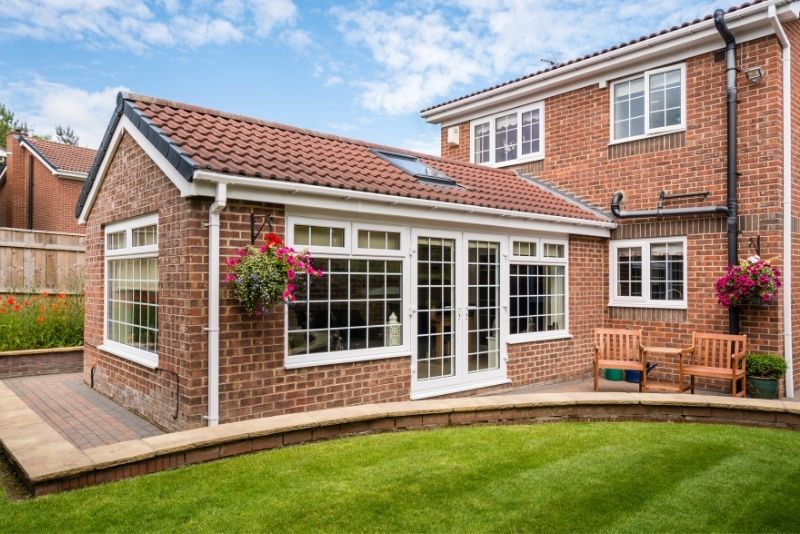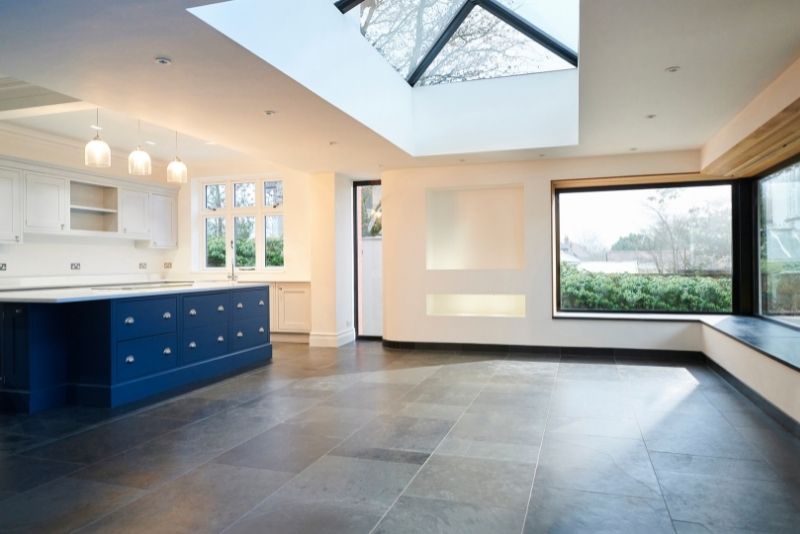Where to start with a house extension?

Many people are now choosing to improve their homes rather than move – the cost-of-living crisis, working from home, and staycations have had a huge influence on how we view our homes. After all, we have never been in them as much as we have been over the last two years.
Whether you are considering adding value to your home to maximise on your investment for resale, add more enjoyment to your new-found homely lifestyle, add a professional home office, or even a gym room extension, these days the only restriction is your budget!
The first step is to know what you want to achieve and why. Be warned though, according to Ideal Home some renovations and extensions could see the average home lose value, based on expenditure versus profit reward. If you do decide to install one of these, it makes sense to ensure you are likely to use it every day, as opposed to installing it to increase the value of your home for resale.
Wine cellars – designating a liveable space to a bespoke fitted wine cellar could knock up to £46,075 off the value of your home. That wine rack on the side isn’t looking too shabby now is it?Swimming pools – while pools add value to homes in sunnier climes, in the UK installing one could put concerned buyers off to the tune of £33,000.Tennis court – if you are lucky enough to have the space, installing one could potentially lose you £30,000 on the value of your home.Home cinema – a designated room for a professionally installed Dolby surround sound and a projector system, with all the plush trimmings, may be a luxury, however you’ll be unlikely to recoup your costs with a projected loss of £25,500.Extensions – many extensions don’t really ‘pay off’ (at least not immediately), so if you are planning to sell, obtain planning permission for the work instead and include ‘the vision’ as part of the package. An extension built for resale can see a seller lose up to £18,000. New boiler – homeowners and buyers will want a new, energy efficient boiler, but installing one won’t add value to your home, while setting you back thousands. The experts at Ideal Home suggest that you would be better off repainting and thoroughly cleaning your home for sale, and leaving the installation to the new buyer.
House insurance while building an extension
Whatever you decide to do, building sites are hazardous. With builders going in and out, heavy machinery and materials being delivered, doors and windows being replaced and everything from wiring to gas and water works being worked on, you’ll want to know that your home, and its contents are covered.
Did you know that you could also be liable for injuries that may be suffered at your home as a result of the building work?
Assuming you’re employing a professional building company, you’re likely to be tied into some legal obligations in your contract with them. One such obligation may involve insuring your home – both in its present condition and for the work you’re having done to it – in a joint insurance policy with your builder, so check the wording of your contract carefully.
When you enter into a joint contract like this, insurers aren’t able to recover costs from your contractor even when they’ve been negligent, so many insurers may be hesitant to maintain your insurance cover at its current level. What’s more, contractors are meant to ensure that they have insurance cover for the work they’re doing, but if they don’t, you’re likely to be left in the lurch if something goes wrong. Another dilemma is a builder holding invalid insurance – one example is a builder who failed to declare their CCJ to their insurers which voided the cover in the event of a claim!
Always ask to see documentation, respected builders will be familiar with producing this and won’t have a problem with the request. And where possible, consider purchasing your own cover.
How much does it cost to build a house extension?
It could cost double if you have to rebuild it at your own cost.

You may not have thought about this until now, but your home will always need to be insured for the cost of rebuilding it. If your home improvements mean that it would cost more to rebuild, your insurer needs to know about it to ensure you’re fully covered should the worst happen, such as a fire or flood.
This may increase your premiums but will save you significant heartbreak and expense in the event of a claim if you don’t have enough cover to pay for the rebuild.
Here’s another point: redecorating or installing a new kitchen are unlikely to affect your insurance significantly, if at all. However, leaving your property while the work is being carried out could impact your insurance. If you elect to move out during the build, for 30 days or more, and even with builders in and out, the site is deemed as ‘unoccupied’ by insurers after this 30-day period.
Any structural changes such as an extension, loft conversion or any type of works that will involve your home being left empty or potentially unsecure for any period of time needs to be flagged with your insurer.
Home improvement insurance quote
Another element to consider is the rising price of building materials. It is critical to ensure that building cover is sufficient to fully reinstate the build if the worst should happen.
If you do add any big investment to your home, whether it’s new home cinema equipment, an electric vehicle charging station, or a full-blown kitchen extension, it’s important to protect your liability, and investments in the event of fire, theft or damage.
If you have any questions about an upcoming build, or investment into your home, contact your local A-Plan branch who will be happy to guide you.




